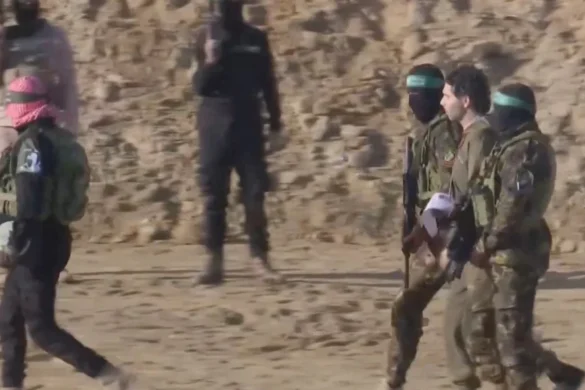Turkey launched a military operation against Kurdish fighters in northeast Syria on Wednesday, with air strikes hitting the border town of Ras al Ain.
President Tayyip Erdogan, announcing the start of the action, said the aim was to eliminate what he called a “terror corridor” on Turkey‘s southern border.
President and Commander-in-Chief @RTErdogan, who was briefed by Minister of National Defense Hulusi Akar, ordered the launch of #OperationPeaceSpring. pic.twitter.com/FA2B79gG5E— Turkish Presidency (@trpresidency) October 9, 2019
Turkey had been poised to advance into northeast Syria since U.S. troops began vacating the area in an abrupt policy shift by U.S. President Donald Trump, widely criticised in Washington as a betrayal of America’s Kurdish militia allies.
A Turkish security source told Reuters the military operation into Syria has been launched with air strikes and will be supported by artillery and howitzer fire.
Several large explosions rocked Ras al Ain, just across the border across from the Turkish town of Ceylanpinar, a CNN Turk reporter said, adding that the sound of planes could he heard above. Smoke was rising from buildings in Ras al Ain, he said.
Smoke could be seen rising near the Turkish-Syrian border as Turkish President Recep Erdogan announced that a Turkish military operation into Syria had started.Read more on this #breakingnews story here: https://t.co/gmgGg8QNTR pic.twitter.com/N58AekY7Lr
— Sky News (@SkyNews) October 9, 2019
World powers fear the action could open a new chapter in Syria’s war and worsen regional turmoil. Ankara has said it intends to create a “safe zone” in order to return millions of refugees to Syrian soil.
Erdogan earlier told Russia’s President Vladimir Putin in a phone call that the operation would help peace and stability in Syria.
But Syria said it was determined to confront any Turkish aggression by all legitimate means.
Turkey views Kurdish YPG fighters in northeast Syria as terrorists because of their ties to militants waging an insurgency inside Turkey, an influx of non-Kurdish Syrians would help it secure a buffer against its main security threat.
Amid deepening humanitarian concerns, U.N. Secretary-General Antonio Guterres urged all parties in northeast Syria to exercise maximum restraint and protect civilians.
Kurdish-led forces denounced the U.S. policy shift as a “stab in the back”. Trump denied he had abandoned the forces, the most capable U.S. partners in fighting Islamic State in Syria.




